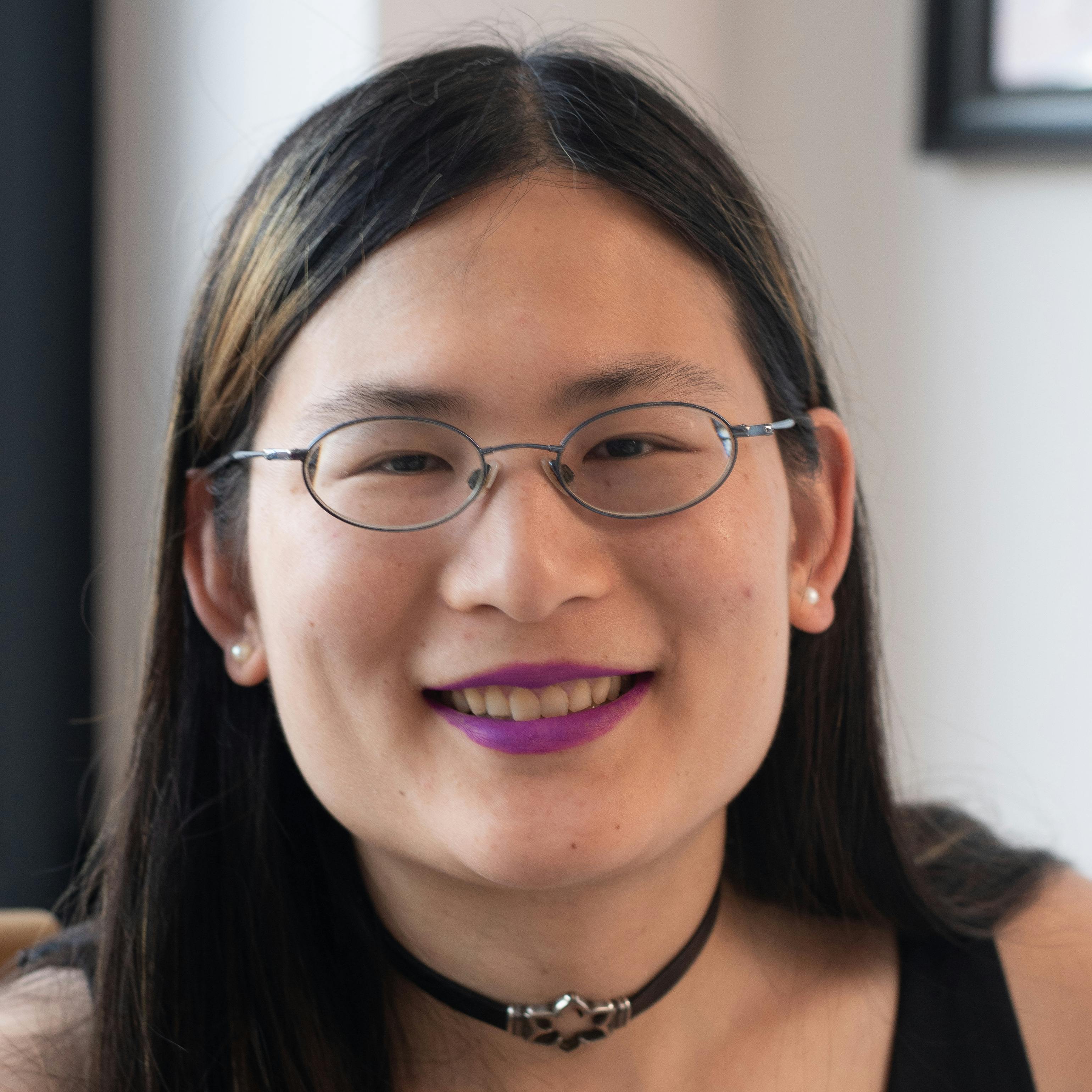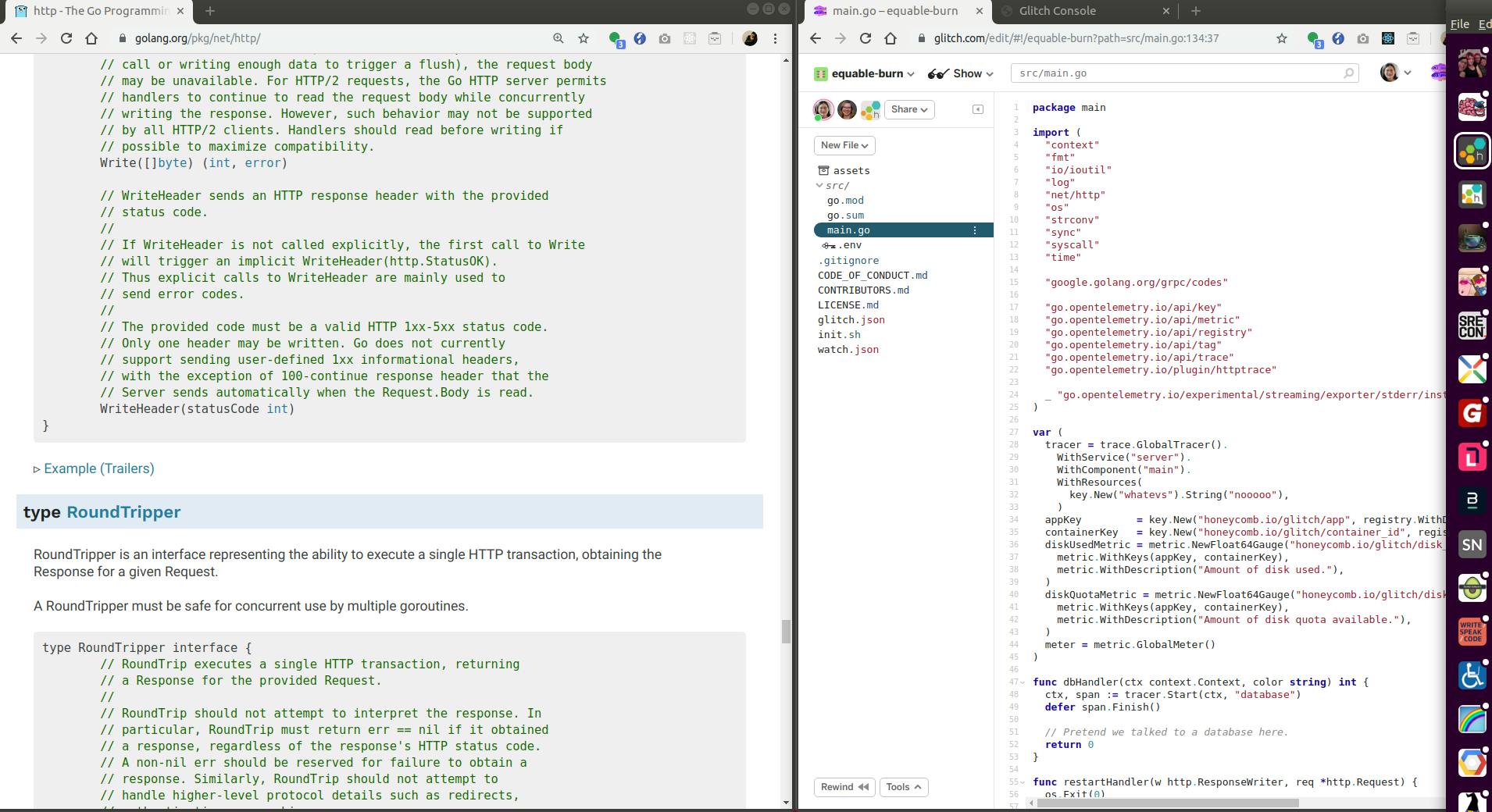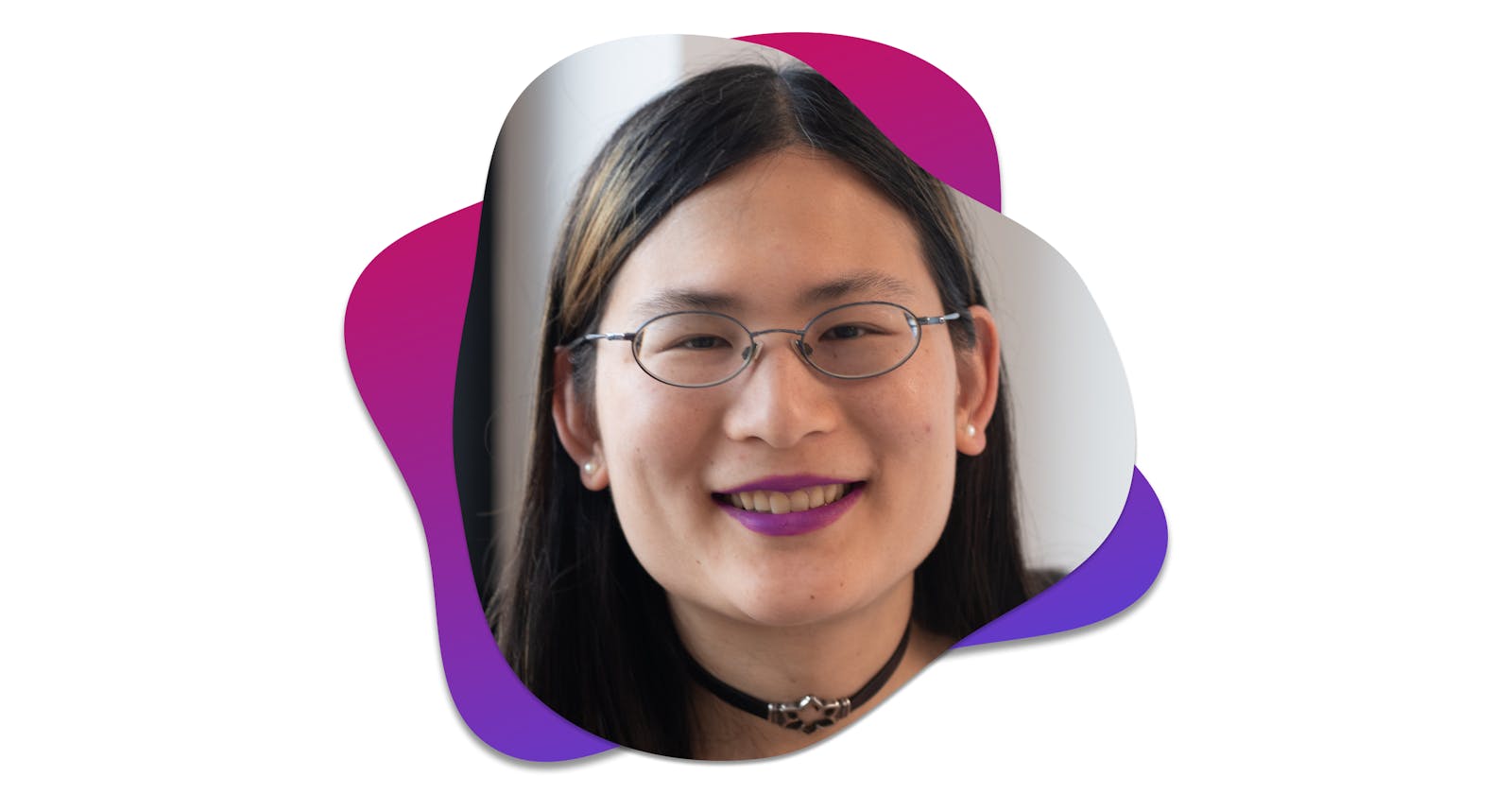Hello, Awesome 👋,
Thanks for taking out time to read this interview.
This series is all about talking to the awesome women in tech, understanding the current health of the tech industry and inspiring other women to become better.
If you want to share your story, please reach out to me at bolaji@hashnode.com.
Today, we'll be interviewing Liz Fong-Jones 👩💻 .
Liz is a Developer Advocate, labor and ethics organizer, and Site Reliability Engineer (SRE) with 15+ years of experience. She is an advocate at Honeycomb.io for the SRE and Observability communities, and previously was an SRE working on products ranging from the Google Cloud Load Balancer to Google Flights.
I interview leading women developer every week and showcase their history, opinions and advice on the tech. In case you missed our previous interviews, check out the " She Inspires " series on Hashnode.
Also, if you find this interview useful, please don't forget to share with your friends and colleagues. 😃
Please tell us a little bit about yourself. How and when did you venture into tech?

Liz: I was assigned male at birth, so I had the fortune of my uncles encouraging me to go into tech; I had a computer and started programming in QBASIC when I was 8 years old. Unfortunately, that also meant that I had to go through the painful experience of dysphoria and coming out as transgender when I was in my teens... so it's kind of a mixed bag. Tech definitely saved my life by enabling me to earn an income as an engineer and support myself once my biological family rejected me.
What difficulties have you faced on your way in tech? Have you ever felt like you were not treated as equal?
Liz: Given that I started my professional career in tech as a trans woman who was out whether I liked it or not, I've had a lot of circumstances of discrimination on the basis both of my gender and my trans identity. They range from the person passing out paychecks asking "who's <deadname>?!!" to a colleague on a team saying to another trans colleague "You remind me a lot of Tootsie." [a deeply offensive movie that stereotypes trans people as deceptive]. I've also gotten the usual gamut of gendered feedback that women of color get ("you're too aggressive"/"you hurt dudes' feelings"), bosses passing me and other women colleagues over for promotions, and on and on the list goes.
If there’s a bias women face, why do you think it is still there, in the 21st century? What are some things people and organizations could do to change this?
Liz: I think that we can't just talk about the issues that women face, we need to examine the intersectional aspects of this. We aren't all free when cis white women are free, we need to focus on the people that are most marginalized, especially black trans women and black non-binary people. This means that we need to address systemic racism and transphobia inside and outside of tech. I personally am involved in backing organizations that help support trans people, especially trans people of color -- whether it be through direct support of crisis lines such as Trans Lifeline, support for litigation via Lambda Legal, and support for policy change through the National Center for Transgender Equality. I also work with organizations such as Career Karma and Ethel's Place to make sure that we are advancing the careers of people of color.
You are a Site Reliability Engineer Liz, can you tell us a little about this role and do you think people know well about it?
Liz: Site Reliability Engineering is an interdisciplinary role made up of specialists whose goal is to make products appropriately reliable. We help teams define, measure, and adhere to Service Level Objectives, whether it be through educating about best practice, writing automation and observability into products, or even doing the odd bit of operational work ourselves. However, we aren't necessarily going to always stick around and bail out teams; full service ownership by development teams (occasionally aided by SRE) is important! There's a fair bit of buzz around it, but very few well-trodden paths into it; thus, many companies have adopted the job title without actually changing the way their teams work. This is something I'm keenly concerned about and working to fix through establishing a worldwide community of practice e.g. through SREcon.
Before now, you worked as a Site Reliability Engineer (SRE) working on products ranging from the Google Cloud Load Balancer to Google Flights. What was your experience at Google like?
Liz: I had a great start to my career at Google -- the scale is incredible, my colleagues were brilliant, and I learned so much. However, my experience at Google was marred by a pattern of sexual harassment by its executives, discrimination and retaliation, and unethical conduct that ultimately caused me to seek employment elsewhere for the next step in my career.
You currently work as a Principal Developer Advocate at Honeycomb, can you tell us a bit about Honeycomb and your work there?
Liz: Honeycomb focuses on making software observable -- so that developers can understand what's going on inside their production environments and code without tearing their hair out. Developers of modern distributed systems waste so much time on chasing bugs and fighting fires, when they could be instead using instrumentation and tools that are better designed to address today's complex needs. Honeycomb's product focuses on structured event-based telemetry and distributed tracing, enabling teams to obtain insights about their code.
As a developer advocate, I wear many hats -- I'm the right hand person to the CTO, and work across sales, marketing, product management, engineering, and operations. My singular goal is to help align Honeycomb with the market and the market with Honeycomb. My daily activities range from responding to oncall incidents as any other engineer would, to keynoting in front of thousands of potential customers, to writing blog posts, to writing open source integrations code.
You specialize in Site Reliability Engineering, how did you decide to focus on this path?
Liz: I stumbled into SRE because I was looking for a generalist role blending software engineering and systems engineering. If you locked me in a room and made me write code all day, I'd cry, and the same is true for operations. As my boss Charity Majors likes to say, operations work is like salt, you need a little bit of it in your life to keep it from being bland, but you can't dump salt into everything.
What advice do you have for a developer who wants to get started with Site Reliability Engineering?
Liz: Be blameless, and learn from others' incidents and systems failures. When you ascribe blame or have a closed mind, you'll fail to gain the experience that enables you to thrive across new teams and projects.
We see that you speak and teach at software conferences, how did you get into public speaking and how has it affected your career?
Liz: An act of sponsorship changed my life. Outgoing SREcon co-chair Sabrina Farmer knew that I was an extroverted SRE who had worked across a dozen teams in my career and had seen a lot of different SRE practices, so she suggested that I become one of the next co-chairs of SREcon Americas in 2016. And I took to it like a fish to water. It's been strongly positive for my career, because I know that there are heaps of people who would hire me in a heartbeat, but I needed that solid base of credibility as a practicing SRE before anyone would listen to me. So it's definitely not an early career role.
What advice would you give to aspiring programmers who look forward to speaking at meetups and/ or conferences?
Liz: Write your outline first, even before submitting a talk proposal. The outlining process can take the stress out of writing slides, and can help you refine your message even before you send it to organizers or step onstage.
What advice do you have for college students who are learning how to code or working already?
Liz: Make sure that college is really the right thing for you. In this day and age, it's an investment of tens of thousands of dollars, if not hundreds of thousands of dollars. I personally dropped out, and then went back when I had a more stable financial situation and knew that I had specific things I wanted to learn, rather than doing college because it was the default thing to do.
What do you think needs to be done to encourage beginner developers to learn programming languages and continue learning?
Liz: I don't think this is the biggest problem we have; I think the biggest problem we have is retention of senior marginalized folks in the industry. There's this huge pattern of people burning out at the 10-year mark, or the gap between the number of folks with tenure-level Senior engineer titles and those who are chosen for Staff/Principal roles. Let's open the path so people can see a long-term future in the industry rather than just doing 5-10 years and then crashing out.
Imposter syndrome is one problem developers face especially newbies, what is your experience with imposter syndrome, how did you manage yours and what advice do you have for anyone facing this currently?
Liz: lol idk this is something I still struggle with. It helps to remember that you can both admire people and be admired by the same people. Establish a strong cohort group.
Rejection emails is another thing that motivates imposter syndrome and depression amongst developers especially intermediates. How did you manage this effectively during your "job-hunting" days?
Liz: I wish there were an easy answer to this one, but the answer is sadly "if you're marginalized, you're going to be evaluated on where you are now, rather than your potential... so work on improving the artifacts you have, and yes, it's fucking unfair".
You write and teach Liz, what is your super power and what advice do you have for a newbie who wants to get started with technical writing?
Liz: I love technical writing so much. Strong writing skills are the number one thing I took away from high school and have carried me to where I am in my career. Blogging or microblogging can be pretty great -- because it's lower in commitment than trying to put out fully polished articles. Just don't read the comments//turn them off.
What advice would you give to aspiring programmers who look forward to working for companies like Google or Honeycomb?
Liz: I'm not sure Google is the best place to work today, although one could argue it's fine if you put your head down and ignore the awfulness, and hope you don't land on a bad team :( and as far as startups go, it's challenging for startups to take risks on aspiring programmers because it requires lots of structure and mentorship to ensure people thrive... Pick medium-size businesses rather than large or small businesses to work at if you want a mixture of stability and growth opportunities as a junior, I'd say.
What is the best advice someone has given you that has helped you in your career?
Liz: I think a lot about Charity's advice that "there are many offramps to engineering but not many onramps"... focus on building your core skills of writing and people-ing, but always make sure you have a technical hustle of some kind to make sure you're able to access the more prestigious jobs, even while you work to dismantle the stigma of "non-technical" or "technical-adjacent" jobs.
What are your favorite programming tools?
Liz: I love glitch.com and honeycomb.io ;)
What does your development environment look like? Could you please share a photo? :)

Liz: Note: the cut off slack window that contains confidential information if I were to not crop it; I also keep music open in a separate tab, have console windows I can pull open if I need to, and there's my email, tweetdeck, etc. hiding elsewhere.
Finally, what would be your message to women trying to get into technology?
Liz: Don't give up. There's a reason misogynists are trying to keep us out of tech, and it's because at its heart, tech is fun and pays well ;) (and that goes for non-binary folks too -- I really dislike the focus only on "women" as opposed to people who are marginalized because of their gender as I've detailed above...)
Did you find Liz's story useful and inspiring?
Write down your thoughts in the comments section below and don't forget to share. You can follow Liz on Twitter.
See you next time and keep trailblazing 👋.

